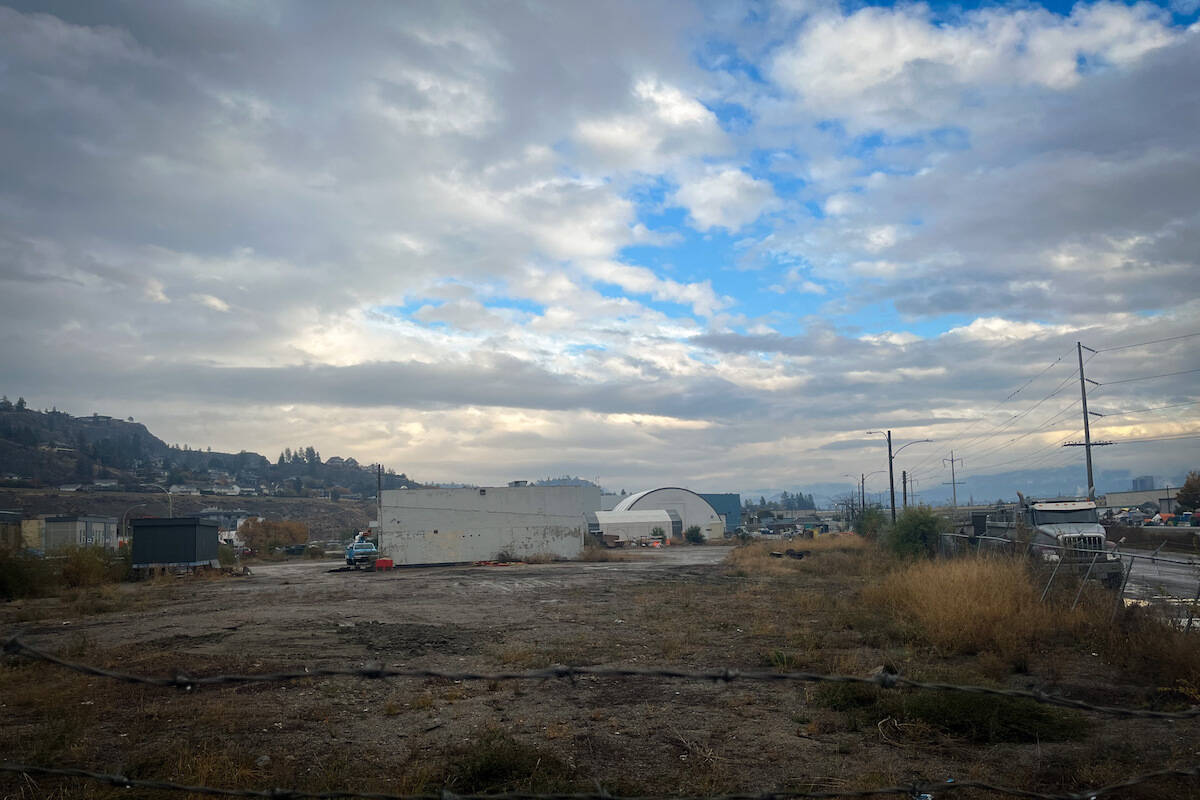When the location for the new tiny home village, which is intended as an option to house people experiencing unsheltered homelessness in Kelowna, was announced on Nov 2, many people were taken by surprise.
The village of 60 tiny homes will be sandwiched between industrial businesses, including ACE Courier, on Crowley Avenue, and the rail trail encampment, also known as Tent City on Weddell Place. Current plans are that the village will contain 60 of the 120 tiny homes that have been promised to Kelowna.
Currently, approximately 150 people call Tent City home.
READ MORE: Kelowna to build tiny homes on Crowley for people experiencing homelessness
While the initiative will fill a much-needed housing requirement, residents of Tent City spoke with Capital News and shared their first reactions to the development.
Ultimately, Tent City residents want to make it clear that the tiny house initiative and accompanying social supports seem to be a net positive and much-needed option for people experiencing homelessness in the community.
However, residents said that they wonder why the people who will be living in the village were not included in the planning discussions.
“Nobody came out and asked us what our needs are,” said Mama (name concealed for anonymity), a prominent Tent City resident who earned her street name after spending years helping her unhoused neighbours.
Colleen Cornock, social development manager with the City of Kelowna said that the city meets with the Lived Experience Circle on Homelessness on a regular basis to discuss the needs of Kelowna’s unhoused community.
“Lived experience inclusion remains a core value and driving force in our collective efforts to address homelessness,” said Cornock.
Mama said that the people at Tent City were not given any of the information packages that were distributed to businesses in the area when the village was announced.
“I really want to be positive and I want to be hopeful,” said Debbie (last name redacted for privacy), a long-time Tent City resident, while her eyes welled up with tears, “but I’m not.”
Debbie said that it is going to be a long, cold and emotionally difficult winter for those who are not selected for a tiny home and have to watch people live in comfort across the street.
She added that many people living at Tent City experience mental illness including depression and cannot imagine the pain that it will cause people to see their neighbours be given the opportunity to live in a warm and secure home when they have to sleep in tents across the street.
Cornock said that the process of selecting people to move into the homes will be managed by the B.C. Housing.
“Individuals moving into these units will be assessed and matched with appropriate supports,” said Cornock.
Debbie said that she has no idea what the selection process will entail or who will be considered a suitable candidate for the housing.
The long-time Tent City resident also explained that many of the people living at the encampment are not able to access the shelters in Kelowna for a variety of reasons, including past conflicts, a shortage of beds and for some, simply a desire to be left alone after years of trauma at the hands of people in positions of authority. Debbie expressed that the shelters have strict rules in place to keep the staff and residents safe, but not everyone is able to or wants to abide by rules. For many of the same reasons compounded by a lack of availability, people also have difficulty accessing other forms of temporary or supportive housing in Kelowna, said Debbie.
Tent City and the future tiny house village are located on industrial land, and there are no other homes nearby.
People’s sleep is impacted every night by the bright headlights, backup beeping and noisy engines of the semi trucks that are constantly loading and unloading, said Mama.
In Kelowna, all people experiencing unsheltered homelessness are required to sleep at the city-maintained Rail Trail encampment.
Debbie said that since sleeping through the night is already an issue, she questions why the City of Kelowna has chosen to place the tiny homes in the same noisy area.
“Many factors go into site selection,” said Cornock. “In this case, noise from surrounding businesses was not deemed a serious impediment to the project.”
Jamie Schmidt, an employee with ACE Courier, which is located on Crowley Ave., across from the future village, said that semi trucks come and go from the business constantly, and are loud. He said that ACE’s primary concern is people’s safety. The area does not have sidewalks and is not well-lit. Having semi trucks coming and going directly beside 60 homes is not only disruptive but dangerous, said Schmidt.
He said that waking people up is certainly a concern, but the risk of hitting people or their pets when drivers come in at night is the biggest issue that they will face.
“I don’t think the city took any time to realize the dangers of having people live here,” said Walter Laskowski, who works out of ACE Courier. “The city would never allow a condo or townhouse complex to be built here because of lack of sidewalks, green space… etc. If you’re going to make these homes, then do it right and don’t just turn a blind eye to safety.”
Laskowski and Schmidt both said that the businesses in the area were not consulted on the decision and they were surprised by the announcement.
The timeline for the project is still unknown and more work has to be done before the plot of land is ready for the tiny homes.
READ MORE: Okanagan authors use superheroes to help kids learn about money
READ MORE: Central Okanagan school trustees advocate for education funding needs

